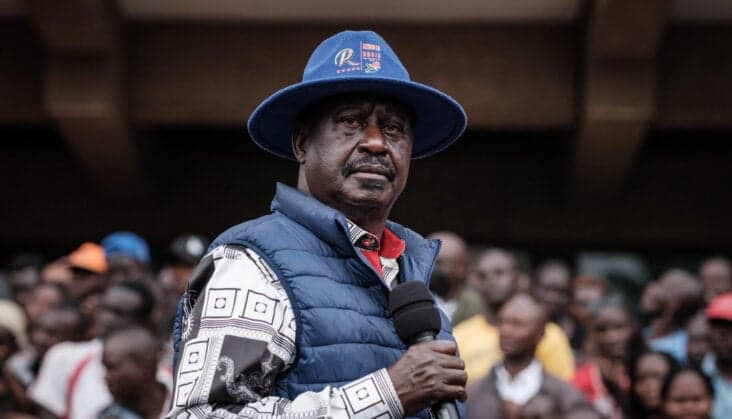We're loading the full news article for you. This includes the article content, images, author information, and related articles.
Veteran politician Raila Odinga has consistently advocated for the two-thirds gender rule, a constitutional mandate aimed at increasing women's representation in leadership, despite its persistent failure to be fully implemented in Kenya.

For three decades, veteran Kenyan politician Raila Odinga has been a prominent male voice championing women's participation in governance. His commitment has been particularly evident in the protracted struggle to implement the two-thirds gender rule, a constitutional provision that has remained largely unfulfilled for 15 years. This rule, enshrined in the 2010 Constitution, stipulates that no more than two-thirds of members in any elective or appointive body shall be of the same gender, aiming to correct historical under-representation of women in decision-making roles.
The Constitution of Kenya 2010, which Odinga helped to shepherd as Prime Minister during the Grand Coalition Government (2008-2013), unequivocally mandates gender balance. Specifically, Article 27(8) states that "The State shall take legislative and other measures to implement the principle that not more than two-thirds of the members of elective or appointive bodies shall be of the same gender." Article 81(b) further applies this to elected public bodies.
Despite these clear constitutional provisions, implementing the two-thirds gender rule has been a persistent challenge. Parliament has repeatedly failed to pass the necessary legislation, missing several deadlines and disregarding court orders, including a 2012 Supreme Court advisory opinion and multiple High Court rulings. Over 11 attempts through various sponsored bills have failed to translate the constitutional provision into law. This legislative stalemate has led to continued underrepresentation of women in both the National Assembly and the Senate.
Odinga's involvement in the gender agenda extends beyond the 2010 Constitution. He was instrumental in the reintroduction of multiparty politics in 1992, which broadened democratic opportunities. More recently, in February 2024, he met with the Multi-Sectoral Working Group on the Realisation of the Two-Thirds Gender Principle, led by Gender Cabinet Secretary Aisha Jumwa. This taskforce, constituted in August 2023 following a memorandum from President William Ruto in December 2022, is mandated to develop a framework for implementing Article 27(8).
During the meeting, Odinga affirmed the consensus that enhanced collaborative efforts are essential for fully realising the two-thirds gender rule. This engagement signals a renewed push, with both President Ruto and Odinga expressing commitment to addressing the long-standing issue. However, past criticisms have questioned whether Odinga's advocacy for gender equality has been more rhetorical than transformative, particularly given the failure to mobilise sufficient parliamentary support for the gender bill alongside former President Uhuru Kenyatta.
The primary challenge remains the lack of political goodwill and a clear methodology for implementation. The patriarchal nature of Parliament and the judiciary has been cited as a key factor in trivialising the rule's realisation. While county assemblies have shown some progress in achieving gender balance through a combination of elected and nominated members, the National Assembly and Senate continue to fall short.
As of the 2022 elections, women held approximately 25-27% of seats in the National Assembly, well below the required 33.3% minimum for either gender. In the Senate, there are 21 female senators out of 67, with only three elected and 18 nominated. This persistent deficit highlights the ongoing struggle to translate constitutional ideals into practical representation.
The Multi-Sectoral Working Group's report, which includes legislative proposals on gender quotas, is expected to be transmitted to Parliament for consideration. This presents a critical juncture for renewed legislative action. The commitment from key political figures like President Ruto and Raila Odinga could provide the necessary impetus to finally enact the long-awaited legislation.
The focus will be on Parliament's response to the Multi-Sectoral Working Group's report and whether a consensus can be built to pass the necessary constitutional amendments. The political will demonstrated by leaders across the spectrum will be crucial in overcoming the historical legislative inertia. The potential for a constitutional crisis due to continued non-compliance remains a significant concern.
Keep the conversation in one place—threads here stay linked to the story and in the forums.
Sign in to start a discussion
Start a conversation about this story and keep it linked here.
Other hot threads
E-sports and Gaming Community in Kenya
Active 9 months ago
The Role of Technology in Modern Agriculture (AgriTech)
Active 9 months ago
Popular Recreational Activities Across Counties
Active 9 months ago
Investing in Youth Sports Development Programs
Active 9 months ago
Key figures and persons of interest featured in this article